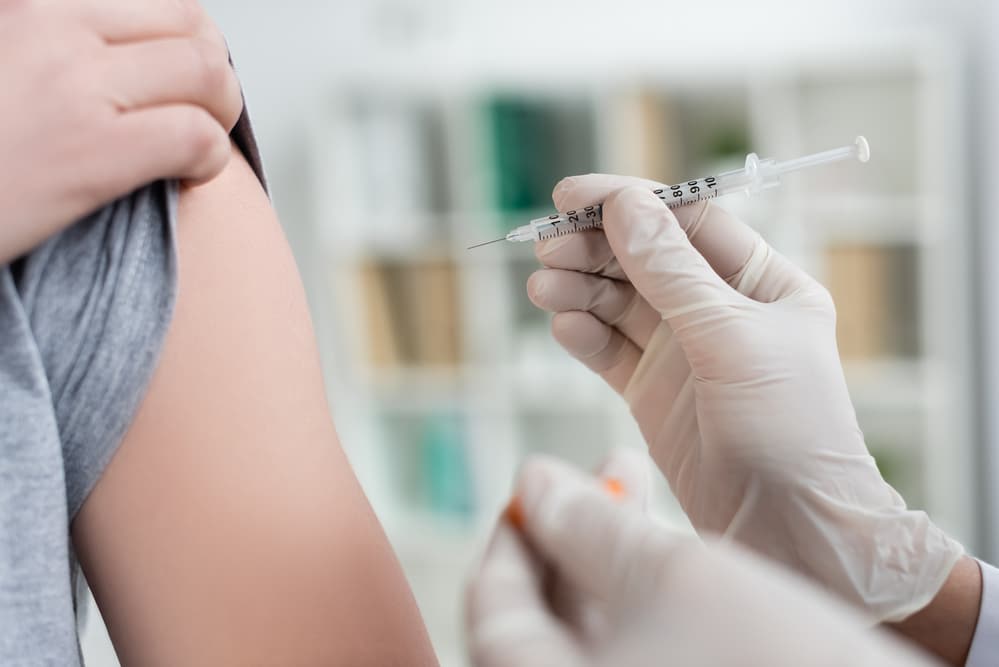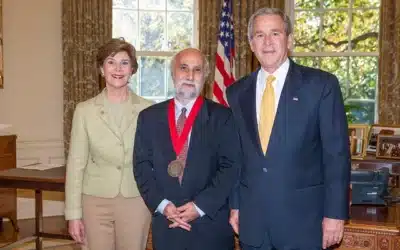In light of Nobel Prizes being given to two researchers of mRNA COVID-19 vaccinations, beltway establishments like that of the Cato Institute have lauded praises onto the decision. To Cato, as evidenced by a blog post by Ian Vásquez, the production of these vaccines was a “victory of globalization!” Whilst it certainly required a vast scale of global resources and networking, it was hardly what one could consider a free market victory. The development of these vaccines was done so by plundered resources, granted legal immunity, and captured market positions.
One aspect lost by the English Cato blog is that of Vásquez’s defense, or rather the lack thereof, of the funding of this research. Rather than discuss where the funding for research in COVID-19 vaccinations truly came from, he attempts to paint it as if it were purely a market phenomenon! In the Spanish edition of the blog, Vásquez adds two additional short paragraphs:
Global capital markets provided the necessary financing to these companies. Moderna was founded last decade as a private company with $40 million in venture capital funding; It then raised US$2.7 billion, then went public in 2018.
BioNTech raised hundreds of millions of dollars through global private stock listings before going public. As a giant multinational corporation, Pfizer was able to fund the $2 billion in testing, production and distribution of the vaccine out of its own pocket.
This portrayal is almost meant to paint the funding of this venture as mostly if not all by private capital. That ignores the massive stake which the government provided. Operation Warp Speed, as begun under Donald Trump, “invested” $12 billion in vaccine development; $2 billion was sent to Pfizer specifically, and over $4 billion to Moderna (the rest was distributed to other vaccine companies). The US government then spent $30 billion purchasing vaccines from these companies, $25 billion of which went to Pfizer.
The production of these vaccines was not done by pure consumer demand but rather by the expropriation of taxpayer money. There are, of course, two avenues for this. Taxation is the most direct. The state extracted wealth from taxpayers, who are no longer able to spend their funds elsewhere.
This is similar to Frédéric Bastiat’s “unseen,” or as Per Bylund dubs it, “the unrealized.” Lines of production that may have been undertaken are halted by the expropriation of these people by taxation. Much the same can be said about inflation. Inflating away to pay for these vaccines results in the ever-dreaded Cantillon effect, as well as the devaluing of the general currency. Those receiving the newly created currency benefit first, meaning, of course, the vaccine companies.
But that need not be the only line of attack against so-called claims that Operation Warp Speed was some free market venture. They may laude the supposed deregulation given to companies and the cutting of red tape as some evidence that it is a free market result, yet that hardly seems to be the case. The deregulation was only temporary and for a select few contracted companies.
To a Rothbardian, a monopoly means only that of a government-granted right. Police are monopolies on law enforcement. The post office is a monopoly. The British East India Company was long a monopoly. However, one could very well make the case for the concept of a “captured market.” This could likely be defined as a market through which regulation is used to stifle competition. This is done through the lobbying of the political body for regulations that drive up compliance costs for their newer competitors.
These vaccine manufacturers were given the near-exclusive right to produce treatments. In fact, other treatments were actively barred or lobbied against by the government itself. One need only look at the condemnation of Ivermectin after its popularization by Joe Rogan. Legally, unless a drug is approved by the Food and Drug Administration, patients are not allowed to use it. Potential treatments for covid-19 may have gone undiscovered because of overregulation. This regulation was excused and fast-tracked only for these vaccine manufacturers. That’s hardly free market, is it?
Perhaps the most damning of them all to the “free market effort” argument is the legal immunity granted to vaccine manufacturers. Since the Reagan administration, the National Vaccine Injury Compensation Program has existed to provide compensation to those injured by a vaccine on the childhood vaccine schedule. Rather than the traditional tort law system in which those injured would be able to bring lawsuits against the manufacturer, they are compensated out of a fund. This fund is paid for by a tax on each vaccine. Thus, so long as the vaccination is on the schedule, there is no reason for specific liability over possible damages of a vaccine. Thus, absent true common law liability, the vaccine manufacturers are incentivized to act recklessly and get their vaccines to be granted this legal immunity.
However, the COVID-19 vaccines have not met this designation yet. These vaccines were granted special legal immunity under the PREP Act. This special immunity is set to expire in 2024, leaving two avenues for the manufacturers: lobby for a further reinstatement of the PREP Act protections, or have their treatment placed on the children’s vaccine schedule. Otherwise, they face liability for the danger of their product. The latter seems to be the approach of Pfizer and the Food and Drug Administration, which has added the covid-19 vaccine to the 2023 vaccine schedule recommendations. The whole operation reeks of cronyism.
Every step of the manufacturing process is a deadly reminder of cronyism. It is funded by the taxpayer through taxation or inflation, both of which rob the market of genuine human economic action. The privileges of this expropriation are then given to a chosen few, and even those who would offer true market goods are prevented from providing them. Finally, it is then protected from any semblance of error by the government. At every step the cronyists, who can lobby the government by any means they wish, protect their bottom dollar at the true expense of the citizenry. These vaccines are not a “free market miracle” but rather another sad product of cronyism.
This article was originally featured at the Ludwig von Mises Institute and is republished with permission.































